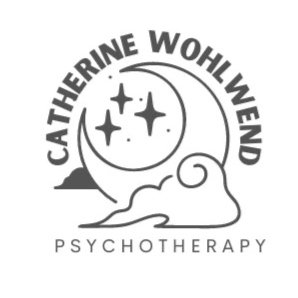
FAQs
“I’ve heard that therapy is only for dwelling on the past”
This is a common misconception! Therapy is a place where your past is relevant, and given my specialities I cannot deny the truth of how much I believe your past matters. Human adults have had millions of experiences by the time they land in front of a therapist, so to suggest that those experiences don’t matter is hard to justify. It’s true that talking about the past can be painful, but talking about it with a professional who is trained to support this exact kind of difficulty is different than simply talking about it with a friend. Most people find that processing their past can often help them have a better future by working out what went wrong and finding ways to heal, cope and become the person they want to be.
Secondarily, in my sessions we will not talk about your past at the expense of your current distress. If you have immediate problems that require in-the-moment support, we will focus on those first.
“How often do we meet?”
In most cases, I meet with my clients weekly. Consistent meetings are often the most effective way to see change in your life. However, this is not always possible or relevant for all the people I see. In particular, working with parents of young children, I will often accommodate the ups and downs of scheduling needs — as long as it is not clinically necessary to meet on a strictly weekly basis (i.e. if you are in a mental health crisis), I maintain a stance of putting your needs first.
“How long does therapy last?”
Therapy varies in length depending on a number of factors. Most people I work with feel changes in their lives after a few months and may reduce the cadence of therapy; some people will stick with therapy for several years because they value or need more consistent support. It’s helpful to keep in mind that many of the problems that draw us to seek therapy have been years or lifetimes in the making, so they may not be resolved as quickly as you might hope. The most important thing to know is that your opinion is the best barometer of your success in therapy; if you feel better, we honor that and will make a plan to end when it feels right for you.
“It seems like most therapy is online now. What do you offer?”
It’s true that many therapists have made the switch to Telehealth and it’s hard to deny the convenience of what it can offer. Due to the convenience, I still have many virtual sessions each week, but I also have in-person availability at my office in the Mission District of San Francisco. I am thrilled to be able to connect with clients face-to-face and value this time spent together.
“What happens if I don’t feel like you’re a good fit?”
If we have already started sessions and you are unsure of something that is happening, you are invited to tell me so. Therapy is a little different than typical social interactions in that you don’t have to worry if you are hurting my feelings or doing something socially unacceptable. Therapy is intended to be a space that you are encouraged to speak what is on your mind. A few things might result from this discussion — we might be able to fix what isn’t going right and improve our therapeutic relationship, which somehwat paradoxically can lead to therapeutic progress: just imagine what it might feel like to express your displeasure in a relationship and then have that person actually validate and attempt to meet your needs? It might be a wholly new experience for you. Or secondly we might decide that you would be better served by another therapist and I would then help support you in finding someone else to work with.
"Knowing yourself is the beginning of all wisdom."
— Aristotle
